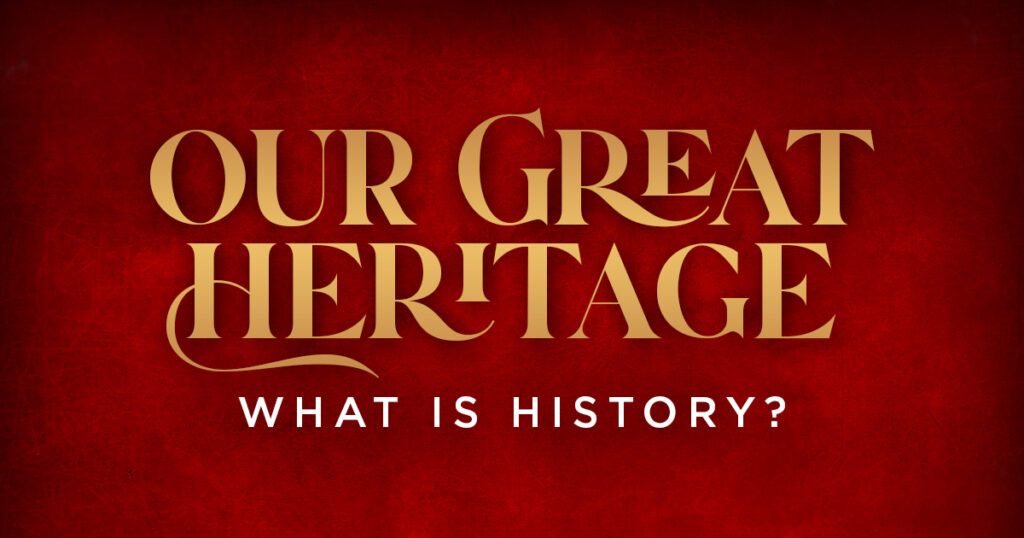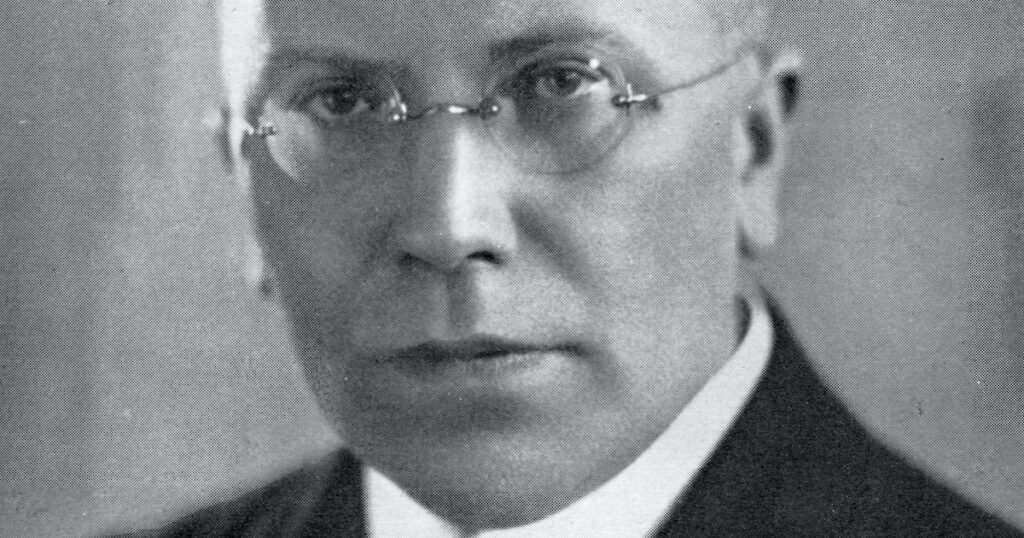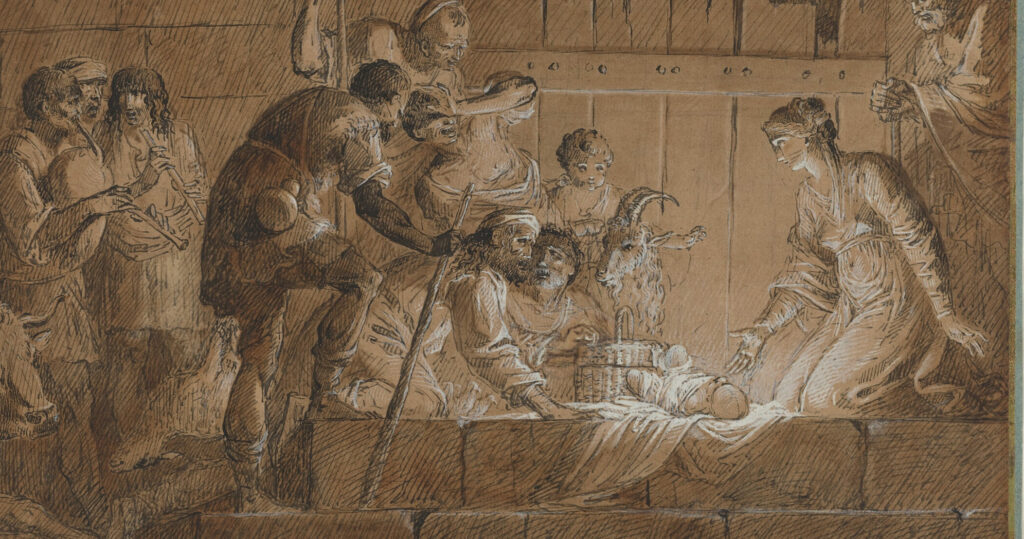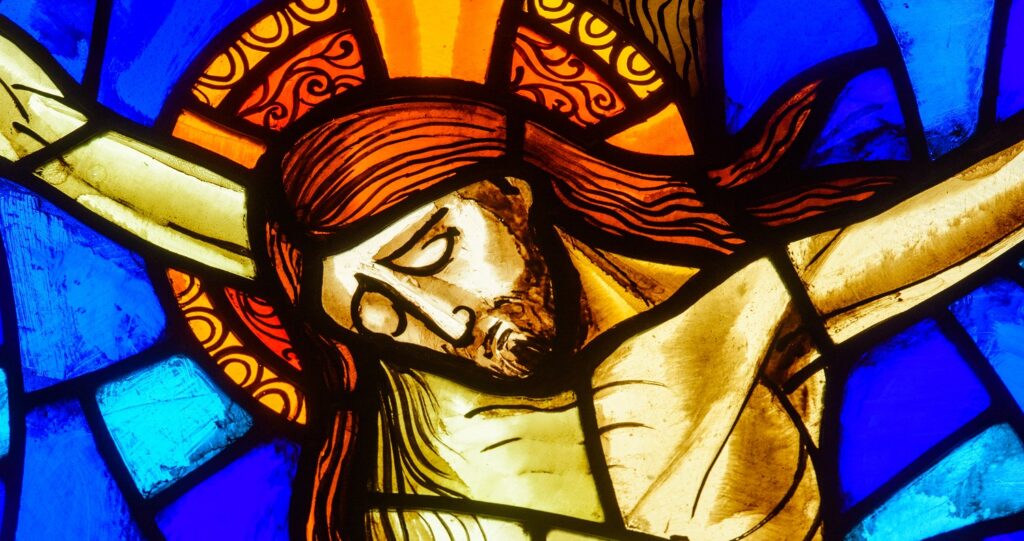In this series, Lutheran historian Molly Lackey will trace the history of the church, from the time of the apostles through the twentieth century. As the Body of Christ, our history transcends time, country and citizenship: “God’s Word is our great heritage.”
Imagine you’re sitting down to write the story of your life. You grab some paper and a pencil, ready to go … and then, before you even put down your first word, you hit a wall. What things in your life do you write about? What things do you leave out? What kind of story does your life tell, anyway?
These are the kinds of questions historians ask themselves when they write about history. This probably goes without saying, but a lot of things have happened in the history of mankind. We can’t possibly know about, let alone study and write about, all of them. So, every historian has to make decisions about what events to put in and what to leave out; every historian has to decide how one event effected a later event; every historian has to make judgment calls about whether past actions were wise or unwise, whether outcomes were avoidable or unavoidable, whether episodes in history tell joyous or tragic stories.

This is true of Christian historians and the history of the Christian church, too. The way we as Christians view history is going to be different from how non-Christians view history. It needs to be, because we confess that the Lord of history, Christ Jesus, God Himself, became a man in a specific time and place, to redeem all of mankind of all of its sins, from the beginning until the end of time.
As a Christian, you already know what history is about: Jesus coming to save you. When people who aren’t Christian study history, they have to look elsewhere to find something that history is all about. For some people, the point of history might be that things are always getting better; for others, it might be that things are always getting worse. Some people think that the point of history is a clash between rich people versus poor people; others that it is weak people versus strong people; or men versus women, one race or ethnicity versus another, humankind versus the natural world — the list goes on and on.
With history, it’s easy enough to prove if someone is wrong about a fact: If you say that Martin Luther was born in 1980 and lives in New Jersey, we can go to historical documents and quickly prove you wrong. But if you say that Martin Luther was a Marxist revolutionary fighting a class war against oppressive, wealthy priests, we’ll need to do a bit more work to prove that this is a silly and wrong interpretation of the past. If you approach history as a never-ending clash of one (good) group against another (bad) group, you’re going to have a hard time, and you’re going to make silly (or even dangerous!) mistakes.

That’s why it’s absolutely paramount to our study of history that, before we get into discussing names and dates, we remind ourselves of our most basic confession: that Jesus is the Christ, the Son of the living God (Matt. 16:16), at whose name every knee shall bow and tongue confess that He is Lord (Phil. 2:10–11), God’s planned climax of and solution to history ever since He promised a Messiah to Eve after the Fall (Gen. 3:15).
As Christians in the tradition of Martin Luther within The Lutheran Church—Missouri Synod, we have some additional assumptions about history that are important. As Protestants, we think that the Reformation was, overall, a good movement that responded to errors in the Roman Catholic Church. As Lutherans, we think that some of the other reformers, like John Calvin or Ulrich Zwingli, were wrong to reject historic Christian teachings about things like the sacraments, the conduct of the Divine Service and the office of the pastor. As Missouri Synod Lutherans, we think that fidelity to the Book of Concord in the face of syncretism and to the Scriptures in the face of modernism is crucial to what it means to be Lutheran. In addition to all of this is our unshakeable belief that Christ Jesus will remain faithful until His Second Coming — never forsaking us but dwelling with us always, in all epochs of history, whether that’s in the slow ebb and flow of the Middle Ages or the rapid sea changes of this post-postmodern era.

In this bi-monthly series, we’ll be exploring the lives of 14 people who help us understand the history of the Christian church as Lutherans. Some will be familiar to you and some won’t be. Some will be Lutherans — even LCMS Lutherans — and some (in fact, many!) won’t be. These 14 men and women help us understand how our church body came to exist and how God has faithfully passed down the faith from generation to generation. They also provide positive examples — and, occasionally, a warning or two — for the conduct of our lives as Christians. Here’s our cast of characters and when they lived:
- Paul the Apostle (c. 5–64)
- Perpetua and Felicitas (d. 203)
- Augustine (354–430)
- Boniface of Mainz (675–754)
- Bernard of Clairvaux (1090–1153)
- Elizabeth of Hungary (1207–1231)
- Thomas Aquinas (1225–1274)
- Martin Luther (1483–1546)
- Katharina von Bora Luther (1499–1552)
- Martin Chemnitz (1522–1586)
- Johann Sebastian Bach (1685–1750)
- C.F.W. Walther (1811–1887)
- Rosa Young (1890–1971)
- J.A.O. Preus II (1920–1994)
This is a very short list, and our time spent with each will be very brief. Hopefully, you will go on to study more deeply about these and other people, continuing to see the ways God has enacted His plan for mercy through human hands. And when you do, you’ll have the key to history from the outset: Jesus’ work on the cross and His promise to always be with us, throughout all of history.
Editor’s Note: The first installment of this series, on the Apostle Paul, will be posted next Wednesday. Check back then or follow us on social media to catch it!







Dear Molly,
Excellent introduction to history and its problems! I like your selection of fourteen persons who are key for our LC-MS history, and I wouldn’t change any of them! I am looking forward to the rest of these articles and hope that CHI, CPH, or someone can publish them together in one booklet someday. Thanks very much to you and CHI for your work on this!
Yours in Christ
Lenten Blessings,
Wow, THANK YOU, Molly for writing this!!
I cannot wait to begin this series! This is gonna be awesome! Thanks be to God for you Dear Sister in Christ!